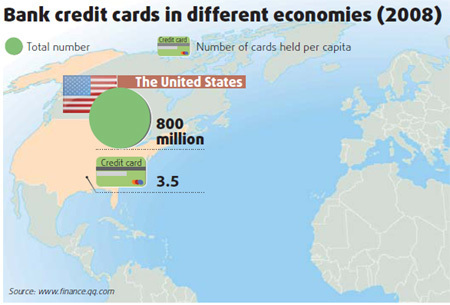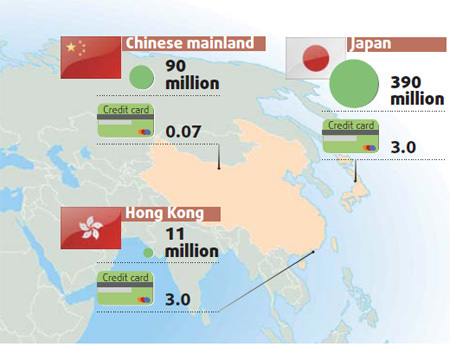Top Biz Photos
Pre-paid shopping cards grow more popular
By Wang Ying (China Daily)
Updated: 2009-12-07 07:54


Once illegal
Pre-paid consumer smartcards were once illegal in China. As early as December 1998, the State Council issued an urgent notice to forbid the print, sale, purchase and use of all kinds of shopping cards.
In January 2001, the Central Government made another announcement to ban all kinds of shopping cards or vouchers.
The revival of shopping cards dates back to early 2003, when the SARS epidemic broke out and spread widely. Sources with knowledge of the matter said regulators didn't ban the reuse of the cards, because the consumer market had been battered hard under SARS hit. After that, the shopping cards again became popular.
Growing demand
Huge demand for shopping cards has also helped generate a new vocation: card broker.
Card brokers do business in shopping malls, supermarkets and other places, buying and selling shopping cards.
A senior card broker told China Business Weekly that card brokers usually make a 3 percent profit by buying and selling consumer cards.
"We only trade cards whose face value is above 1,000 yuan, and we can trade up to 500,000 yuan worth of cards each month," said the broker.
In other word, they can make as much as 15,000 yuan per month by trading cards.
|
||||
"There should be a regulatory body to monitor how the money deposited into the cards is spent and to protect the legal interests of consumers," said Sun of Fudan University.
The sudden bankruptcy of Shanghai Maya Group four years ago left many "Wansheng Card" holders with cards that were suddenly worthless.
The Maya Group had tried to build China's largest convenient store brand after acquiring the Maya 21 Century convenient store chain. But the supply chain crisis finally forced as many as 500 chain stores to shut down at the beginning of 2005. Cardholders had no luck asking for refunds.
Sun said the government should include the pre-paid consumer cards in the financial regulatory system under the China Banking Regulatory Committee.
"To better protect consumers' rights, the card issuers should meet some basic requirements, including registered capital, a limit on the face value of single cards and where the cards can be used," he said.
"To better manage the deposits in the cards, the card issuers would do better by choosing a bank to manage the capital," Sun added.













